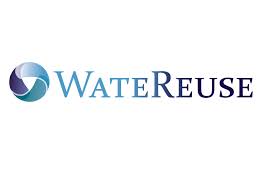In response to the many communities in the U.S. seeking new strategies to develop sustainable water supplies, a diverse group of water sector organizations has released a framework to help state regulatory agencies and utilities develop guidelines for safely converting wastewater into municipal drinking water through the emerging practice of direct potable reuse (DPR).
The document, titled Framework for Direct Potable Reuse, is the result of a collaborative effort between WateReuse, the American Water Works Association (AWWA), and the Water Environment Federation WEF) with the support of an independent advisory panel administered by the National Water Research Institute (NWRI).
“The water sector is transforming wastewater treatment into full resource recovery that provides valuable, renewable products,” said WEF Executive Director Eileen O’Neill. “This framework will help communities properly vet and consider incorporating DPR into their overall water management strategy.”
DPR involves the use of state-of-the art advanced water treatment technologies—like membranes, reverse osmosis, and advanced oxidation—to remove viruses, bacteria, chemicals, and other contaminants that may be present in wastewater. Current state and federal regulations were not developed with today’s technologies in mind. “Until guidelines and regulations are prepared, this framework document can serve as a valuable resource to municipalities, utilities, and agencies interested in implementing DPR programs to augment community water supplies,” said Melissa Meeker, Executive Director of the WateReuse Association and Research Foundation.
“Freshwater resources are increasingly at risk in many communities,” added David LaFrance, CEO of AWWA. “With many communities seeking to expand their water supply portfolios, this guidance will help ensure that DPR is a safe and viable option.”
The Framework was prepared by a panel of seven experts with backgrounds in water and wastewater treatment, water quality policy and regulations, water resource planning, and public health risk assessment. These experts have extensive experience with proposed and existing DPR projects within the U.S. The chair of the panel is Dr. George Tchobanoglous, professor emeritus of civil and environmental engineering at the University of California, Davis.
The Framework document provides a context for DPR, including the costs, benefits, energy requirements, and comparative issues with other water sources and measures. Following this introduction, three key components of a DPR program are examined: (1) regulatory considerations (e.g., measures to mitigate public health risks); (2) technical issues related to the production of advanced treated water; and (3) public support and outreach.
“This document represents the first comprehensive framework for developing guidance for DPR,” said Jeff Mosher, Executive Director of NWRI. “The Panel is to be commended for its effort to pull together so much information into one useful, readily accessible document.”
Members of the panel included panel chair Dr. George Tchobanoglous of the University of California, Davis; Dr. Joseph Cotruvo of Joseph Cotruvo & Associates; environmental engineering consultant Dr. James Crook; Dr. Ellen McDonald of Alan Plummer Associates; Dr. Adam Olivieri of EOA, Inc.; Andrew Salveson of Carollo Engineers; and Dr. R. Shane Trussell of Trussell Technologies, Inc.
About WateReuse
The WateReuse Association and the WateReuse Research Foundation provide a comprehensive and complementary approach to increasing water reuse. The WateReuse Association is a nonprofit coalition of utilities, government agencies, and industry that advocates for laws, policies, and funding to promote water reuse. The WateReuse Research Foundation is a nonprofit, charitable organization that conducts research to improve the treatment, distribution, and acceptance of water reuse. Together, they educate policymakers and the public on the science, economic value, and environmental benefits of treating water to safely use it for a specific purpose, such as irrigation, manufacturing, or drinking.



